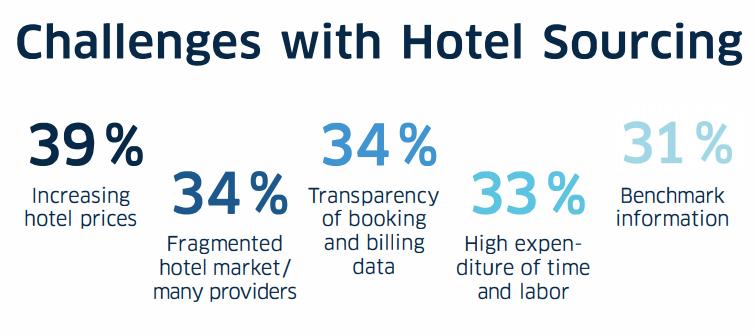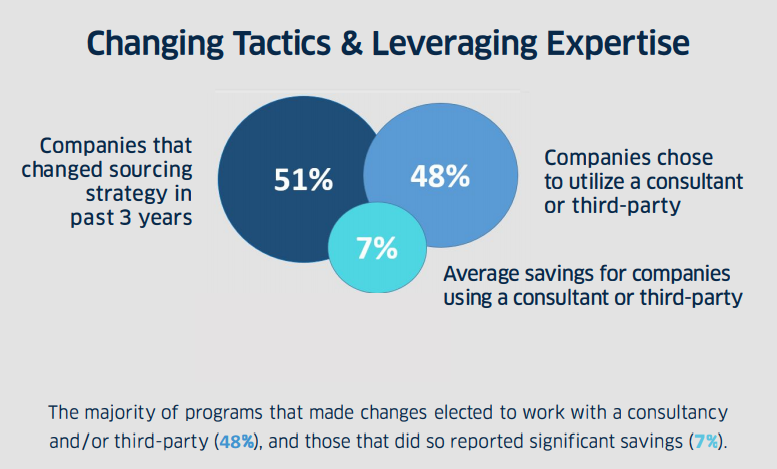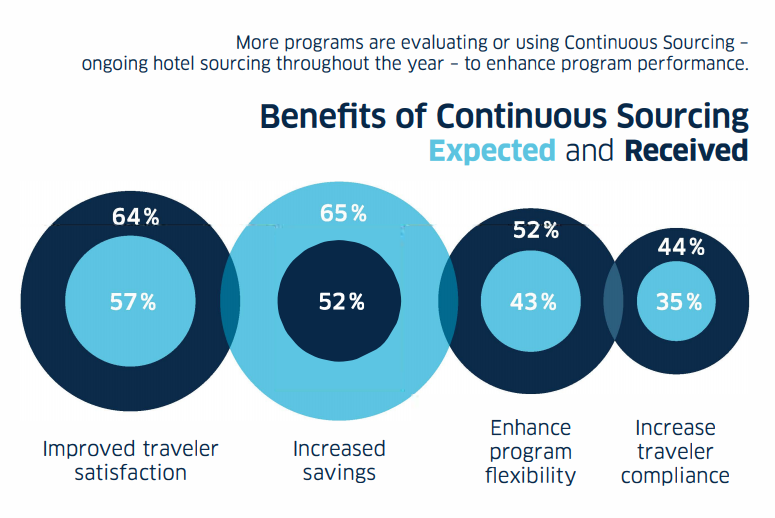The survey included a diverse group of travel executives across the globe, including travel executives from companies with small (under USD5 million annual spend) programmes (32%), medium (USD5 to USD10 million) programmes (14%), and large (USD10 million +) programmes (44%) (percentages do not sum to 100% due to a small number of travel executives who did not report their hotel spend).
Most travel executives in the survey handle sourcing internally, though a significant portion use consultants. Just about one-third say they are highly satisfied with their current negotiation approach, while the majority report only moderate satisfaction. There is frustration with fragmentation, rising prices, lack of data transparency, and the amount of time and labour involved in the sourcing process.

ACTE Executive Director Greeley Koch, said:
"For the past four decades, travel managers have spent their third quarters buried in hotel sourcing reviews. The once-a-year negotiation strategy worked for a long time. But that was back when the industry was relatively quiet, and it took months or years for change to kick in. Today, changes in pricing, content availability and your company's needs can hit within a matter of hours. Such seismic shifts call for a conversation about how business travel managers look at hotel sourcing. We at ACTE, in conjunction with HRS, thought this was a good time to take the pulse of the industry."
"We wanted to know about satisfaction with sourcing and rate audits as well as how and whether travel managers are staying up to date about their programmes. So we polled ACTE members around the world this winter. No surprise in the findings: the negotiation process needs to be improved. More than half of managers have changed their negotiation process over the past three years, and those who have done some shifting and tweaking have benefitted. Understanding your options is vital, regardless of the size of your programme".
Changes are afoot
Results showed that more than half of executives (51%) have changed how they negotiate since 2015. Regardless of what the managers did - whether taking sourcing internal or hiring consultants - it's been the right move in terms of financial benefits and intangibles.

To make the most of their travel programmes, a small but increasing number of executives have completely upended how they source. They've launched a Continuous Sourcing process, in which they audit rates and hotel programme needs year-round, not just once a year.
Early adopters say the Continuous Sourcing approach has delivered financial savings, increased programme flexibility, and improved traveller satisfaction. Some say it reduces workload by spreading the sourcing process throughout the year rather than just a few months toward the end.
Currently, only about one in 10 travel executives around the world has implemented Continuous Sourcing (11%). Lack of knowledge appears to be the most significant barrier to adoption.
It will require a completely different mindset. Currently, the majority of programmes audit rates less than once per quarter. Continuous Sourcing allows travel executives to stay engaged in their programme while addressing sourcing changes throughout the year.

To see the full results and hear more from ACTE and HRS, visit https://www.acte.org/ACTE/Education/ACTE_Corporate_Reseach_Study.aspx